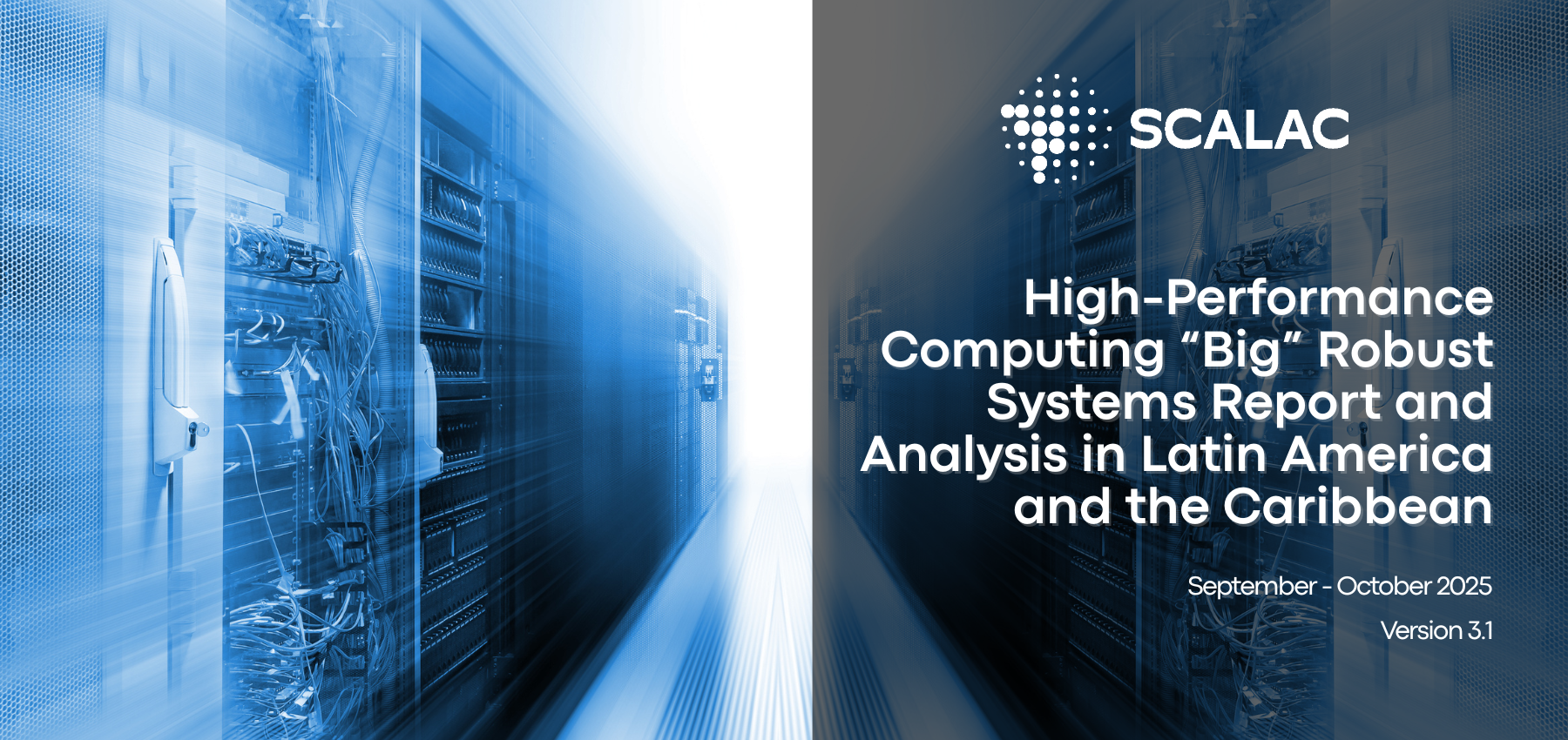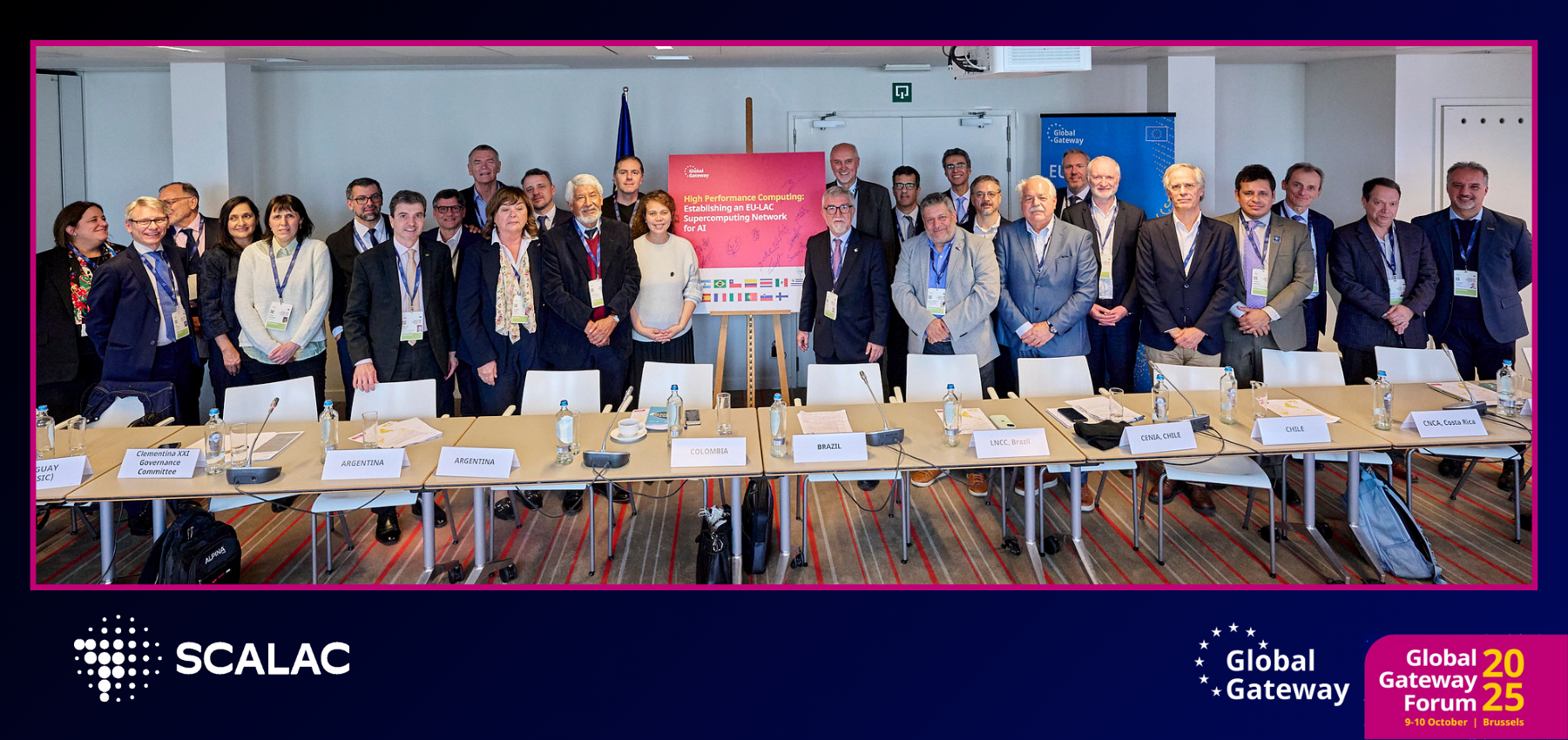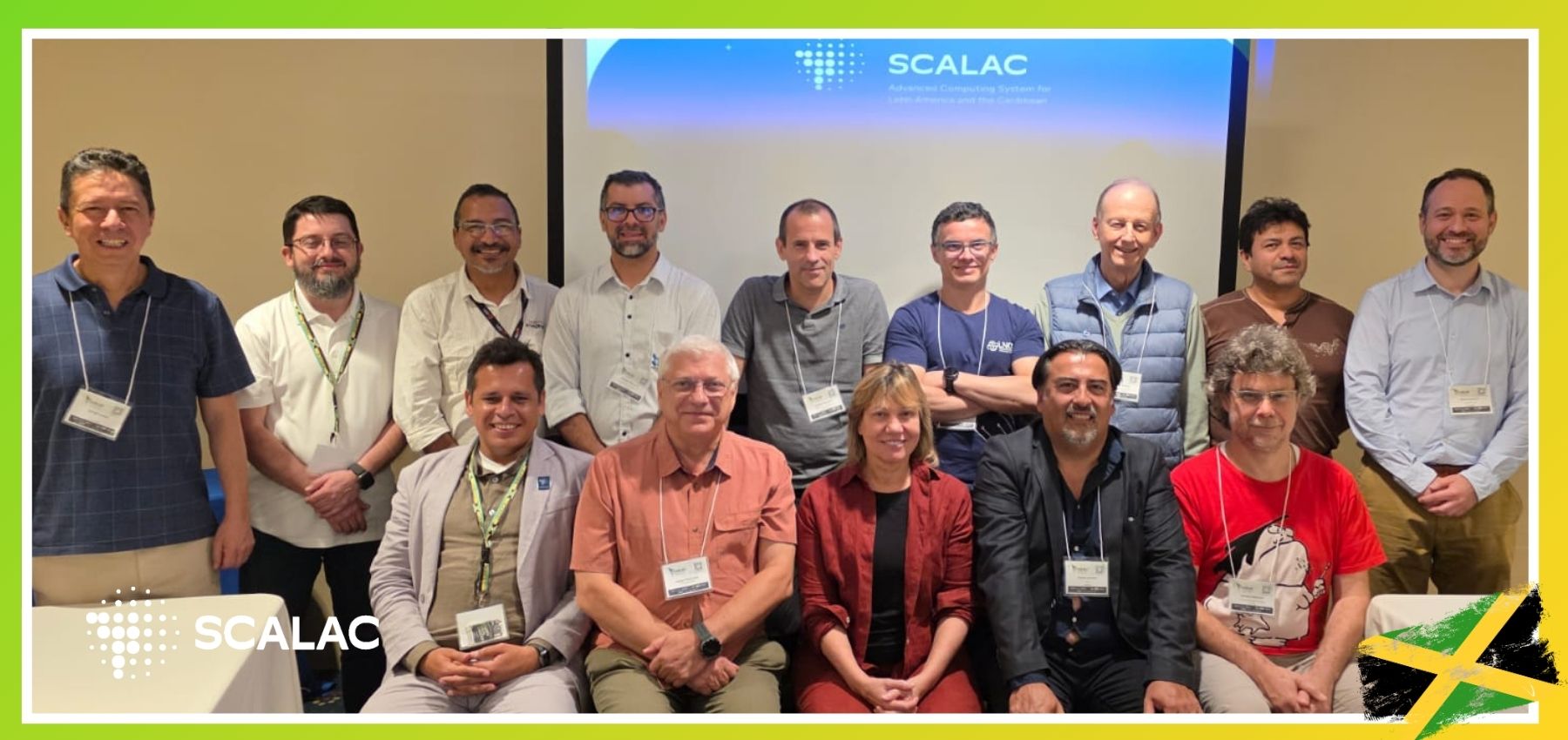Release of the 2025 Report: “High-Performance Computing ‘Big’ Robust Systems Report and Analysis in Latin America and the Caribbean”
High-Performance Computing (HPC) infrastructure continues to consolidate as a key enabler for advanced computing applications and research in Latin America and the Caribbean. Universities, national centers, and specialized projects have invested in HPC capacities—especially to support Artificial Intelligence (AI) workloads and drive the digital transformation of their countries.
At the same time, the global geopolitical context highlights the region’s digital dependencies and vulnerabilities. There remains a lack of assurance regarding data sovereignty and technological autonomy, with Brazil standing out as the main exception due to its sustained investment and public policy continuity.
The new report, titled “High-Performance Computing ‘Big’ Robust Systems Report and Analysis in Latin America and the Caribbean (September–October 2025)”, builds on the Deliverable 2 of the RISC-2 project and the previous SCALAC reports. The HPC Observatory continues to map the robust infrastructures in the region, leveraging publicly available information to enable comparison with past editions.
Main Highlights
-
Focus on “big” and robust systems: major infrastructures publishing data in Latin America and the Caribbean, along with other noteworthy systems.
-
Comparative perspective: insights based on previous reports to observe evolution and trends.
-
Four key areas of analysis: AI workloads, connectivity, energy provision, and usage (access, services, and data openness).
Key Findings
-
AI as a driving force: GPU demand and training workloads are accelerating infrastructure modernization.
-
Connectivity and energy challenges: network latency and energy costs limit regional collaboration and uptime.
-
Transparency gaps: availability of open data and performance metrics remains uneven across countries.
-
National asymmetries: varying investment scales; Brazil continues to lead in sustained HPC and AI infrastructure development.
Methodology and Scope
-
Based on publicly available data from institutions and projects across the region.
-
Comparative and longitudinal analysis with past reports from the HPC Observatory.
-
Observation period: September–October 2025.




